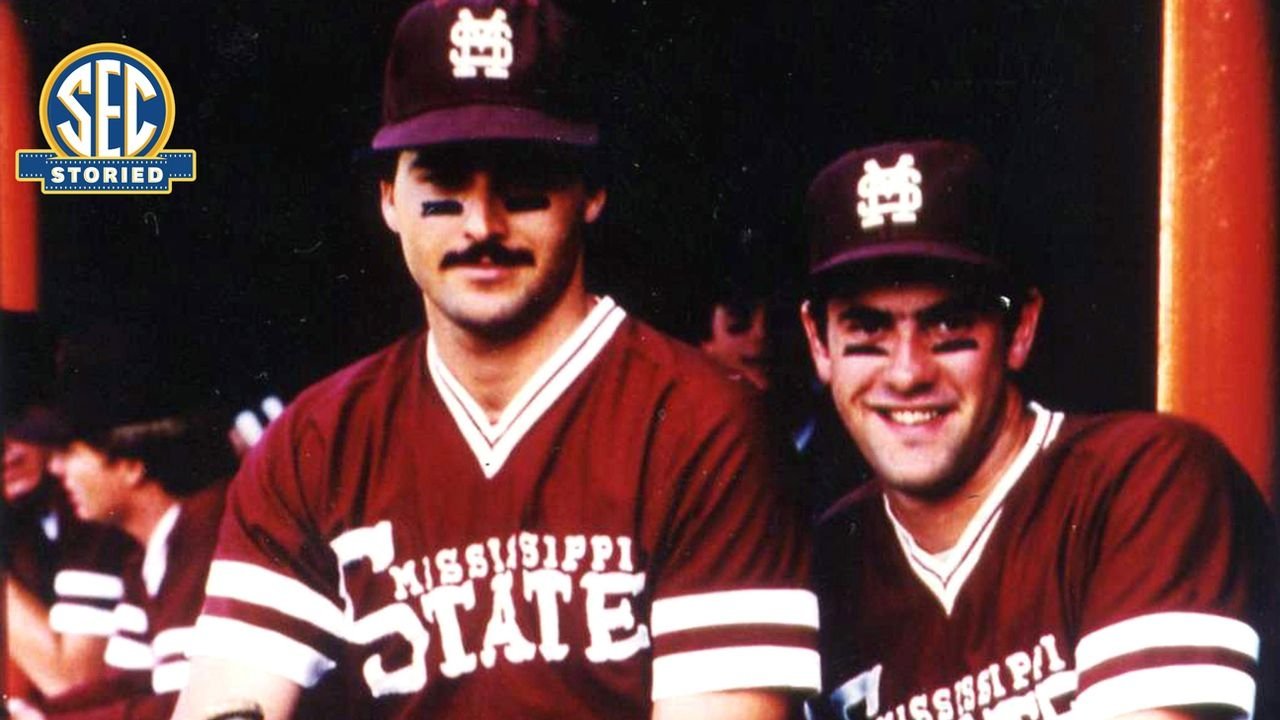
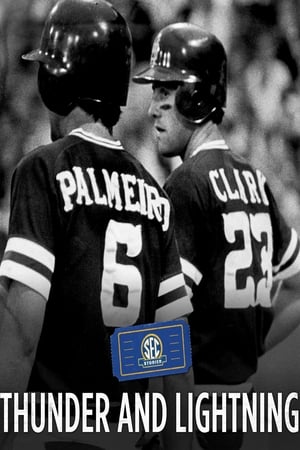
Thunder and Lightning(2015)
The best team never to win the College World Series? It might have been the 1985 Mississippi State Bulldogs, who produced four Major League Baseball All-Stars. Two of them, Bobby Thigpen and Jeff Brantley, became Relievers of the Year, while the other two, Will Clark and Rafael Palmeiro, formed the imposing one-two hitting punch known as "Thunder and Lightning." The brash and bold Clark was born in New Orleans, the son of a pool hustler, while the soft-spoken and shy Palmeiro was a son of Cuban immigrants who did his talking at the plate. As teammates at Mississippi State, they nearly propelled the Bulldogs to a College World Series title. Thirty years later, director Rory Karpf revisits those fabled Bulldogs, tracks the complicated relationship between Clark and Palmeiro, and brings closure to men who should be remembered for what they did, and not for what they didn't do.
Movie: Thunder and Lightning
Top 2 Billed Cast
Himself
Himself

Thunder and Lightning
HomePage
Overview
The best team never to win the College World Series? It might have been the 1985 Mississippi State Bulldogs, who produced four Major League Baseball All-Stars. Two of them, Bobby Thigpen and Jeff Brantley, became Relievers of the Year, while the other two, Will Clark and Rafael Palmeiro, formed the imposing one-two hitting punch known as "Thunder and Lightning." The brash and bold Clark was born in New Orleans, the son of a pool hustler, while the soft-spoken and shy Palmeiro was a son of Cuban immigrants who did his talking at the plate. As teammates at Mississippi State, they nearly propelled the Bulldogs to a College World Series title. Thirty years later, director Rory Karpf revisits those fabled Bulldogs, tracks the complicated relationship between Clark and Palmeiro, and brings closure to men who should be remembered for what they did, and not for what they didn't do.
Release Date
2015-05-04
Average
0
Rating:
0.0 startsTagline
Genres
Languages:
EnglishKeywords
Similar Movies
 0.0
0.0Access: Your Future(en)
From Bob Jones University, this video will teach young Christians how to pick the perfect college.
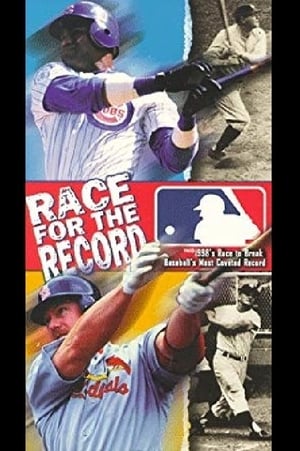 0.0
0.0Race for the Record(en)
Babe Ruth set a record in 1927 by hitting 60 home runs in one season. 34 years later, Roger Maris broke that record. Another 37 years passed before that record was broken by Mark McGwire. Five days after McGwire's feat, Sammy Sosa broke the brand new record. And the race was on! Fans watched breathlessly as the record passed between the two men and time left in the season dwindled. Relive it all, from Ruth, to Maris, to the final days of the 1998 Sosa/McGwire slug-fest.
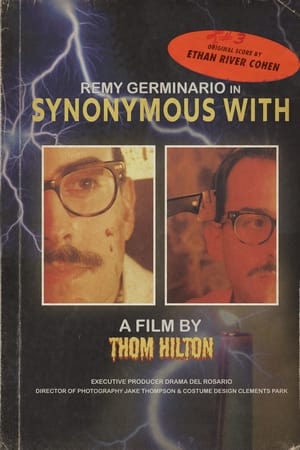 0.0
0.0Synonymous With(en)
A student's increasingly intimate line of questioning causes his interview with a local horror host to take a vulnerable turn.
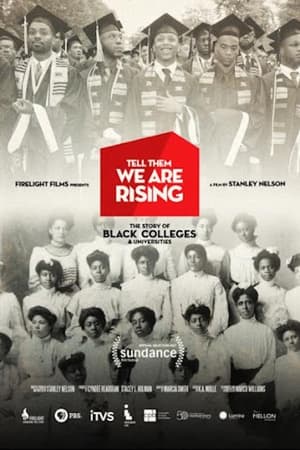 8.1
8.1Tell Them We Are Rising: The Story of Black Colleges and Universities(en)
A haven for Black intellectuals, artists and revolutionaries—and path of promise toward the American dream—Black colleges and universities have educated the architects of freedom movements and cultivated leaders in every field. They have been unapologetically Black for 150 years. For the first time ever, their story is told.
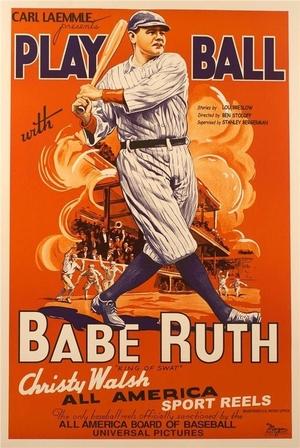 0.0
0.0Play Ball with Babe Ruth(en)
A serial of short instructional films using footage of Babe Ruth to explain the fundamentals of playing baseball.
Gary Carter Visits Japan(en)
Montreal Expos star catcher Gary Carter visits Japan to learn about the customs and traditions of baseball in the Far East. He also encounters other "foreign" baseball players he once played with in the MLB.
 0.0
0.0The 1995 Mariners: Saving Baseball In Seattle(en)
Chronicling the Mariners' memorable run to their first-ever AL West title in 1995, when a team led by Ken Griffey Jr. and Randy Johnson helped keep baseball in the Pacific Northwest and punctuated the season with a stirring ALDS win over the Yankees.
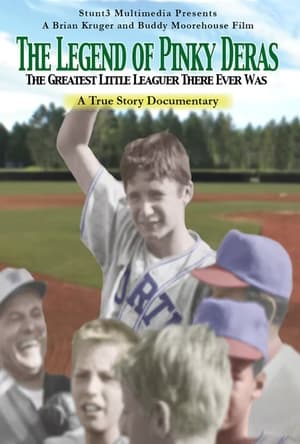 0.0
0.0The Legend of Pinky Deras: The Greatest Little-Leaguer There Ever Was(en)
Since Little League Baseball was founded in 1939, about 40 million kids have played the sport. The list includes future Hall of Famers like Carl Yastrzemski, Tom Seaver and Nolan Ryan, and hundreds of other future Major Leaguers. But of all the kids who ever played Little League, the best of the best was a boy you’ve probably never heard of: Art “Pinky” Deras. In the summer of 1959, he led the team from Hamtramck, Mich., to the Little League World Series title, and in the process, he put together a Little League season the likes of which we might never see again. His amazing story comes to life in “The Legend of Pinky Deras: The Greatest Little-Leaguer There Ever Was,” a new film from Blue Hammer Films. Pinky received a ton of national publicity back in 1959, but then he fell off the map. In the half-century since he lit the Little League world on fire, there have been no films about him, no magazine stories, not even a single newspaper article.
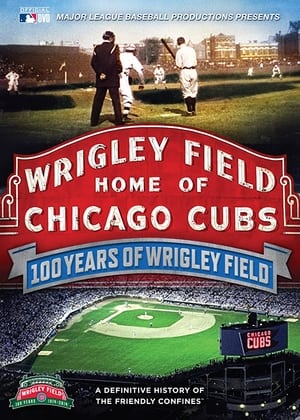 0.0
0.0100 Years of Wrigley Field(en)
100 Years of Wrigley Field celebrates a century of the greatest moments and best personalities of the ballpark on Chicago's North Side.
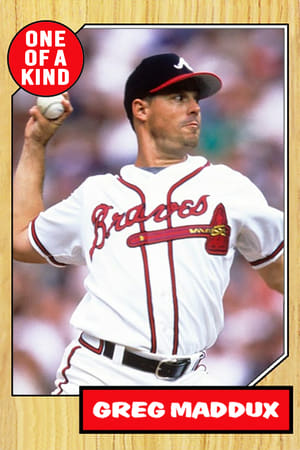 0.0
0.0MLB Network Presents: One of a Kind(en)
One of a Kind uncovers how Maddux was able to achieve one of baseball’s most-decorated and consistently successful careers, serving as the only pitcher in history to amass 300 wins, 3,000 strikeouts and fewer than 1,000 walks.
 9.0
9.0One of a Kind: Greg Maddux(en)
Star-studded group featuring Barry Bonds, Randy Johnson, Chipper Jones, Tom Glavine and John Smoltz to bring viewers inside Maddux’s legendary career;
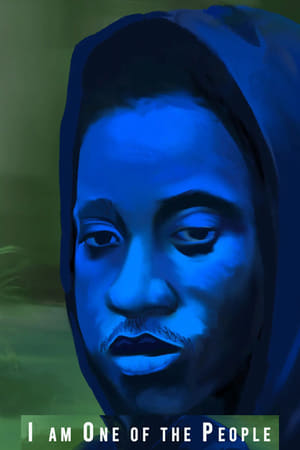 7.0
7.0I Am One of the People(en)
Harmful chemicals are disproportionately affecting Black communities in Southern Louisiana along the Mississippi River. I am One of the People is an experimental short film exposing the environmental racism of “Cancer Alley.”
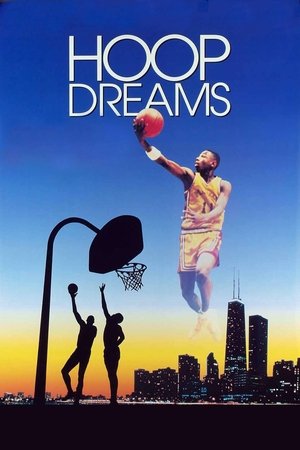 7.6
7.6Hoop Dreams(en)
Every school day, African-American teenagers William Gates and Arthur Agee travel 90 minutes each way from inner-city Chicago to St. Joseph High School in Westchester, Illinois, a predominately white suburban school well-known for the excellence of its basketball program. Gates and Agee dream of NBA stardom, and with the support of their close-knit families, they battle the social and physical obstacles that stand in their way. This acclaimed documentary was shot over the course of five years.
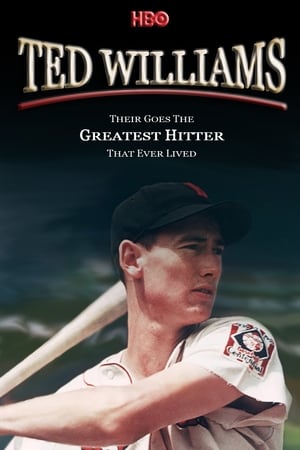 0.0
0.0Ted Williams(en)
Born in 1918 in San Diego, Williams was a latchkey child from a broken home, raised by a mother more dedicated to the Salvation Army than to her two sons, and by a father who spent more time away from home than in it. Williams found salvation by doing the one thing he loved most: hitting baseballs. In his rookie season with the Red Sox, where he would spend his entire career as a player, Williams batted .327, socked 31 homers and led the league with 145 RBI. Over the next 21 years, despite losing five seasons of his prime to active service as a U.S. Marine Corps pilot, Williams hit 521 home runs, twice captured the Triple Crown, and became the oldest man ever to win a batting title. He finished his career with a .344 lifetime batting average, was the last man to hit over .400 in a full season, batting .406 in 1941, and was a first-ballot inductee into the Baseball Hall of Fame.
The 1993 World Series: Toronto Blue Jays vs Philadelphia Phillies(en)
The Toronto Blue Jays — the defending champions — sleek, corporate, efficient — featuring an offensive arsenal that hit a collective 0.311 in the six-game series. The Philadelphia Phillies — a last-to-first success story — with their long hair, beards, and blue-collar work ethic — a softball team in pinstripes. This was a World Series that won't soon be forgotten. A six-game slugfest that sent pitchers scurrying to the showers. The heroes were named Dykstra, Molitor, Schilling and Alomar. The games were unforgettable. The sheer drama of Game Four — with its runs, hits, and duration — all records. The surgical precision of Curt Schilling's shutout in Game Five. And Joe Carter's incredible three-run blast to win Game Six — just the second time in history a home run has ended a World Series.
 0.0
0.0Fatal Flood(en)
In the spring of 1927, after weeks of incessant rains, the Mississippi River went on a rampage from Cairo, Illinois to New Orleans, inundating hundreds of towns, killing as many as a thousand people and leaving a million homeless. In Greenville, Mississippi, efforts to contain the river pitted the majority black population against an aristocratic plantation family, the Percys, and the Percys against themselves. A dramatic story of greed, power and race during one of America's greatest natural disasters.
 0.0
0.0Baseball: The Pete Rose Way(en)
Pete Rose instructs children in the fundamental mechanics of playing baseball.
 0.0
0.0Finding Home: Journey to MLB(en)
Chronicling Latin baseball players in the minor leagues as they experience the ups and downs of pursuing the dream of playing in the Major Leagues.
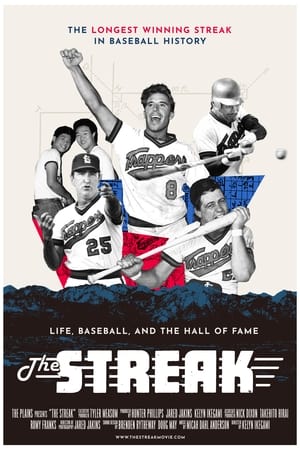 0.0
0.0The Streak(en)
In 1987, a team of outsiders attempt to break a hallowed baseball record in a desperate bid for fame, fortune, and careers in the major leagues. Even if they succeed, no athlete can play forever — and what comes after the death of a dream?
 0.0
0.0Carson Bigbee: The Pirate of America's Pastime(en)
In a time when America was on the brink of modernization, Carson "Skeeter" Bigbee emerged from rural Oregon to become an embodiment of national transformation. Born to working parents in 1895, Bigbee’s life as a multi-sport athlete, a baseball star with the Pittsburgh Pirates, a World War I enlistee, and a World Series hero, intersected with America's Progressive Era, the electrification of society, the First World War, and the onset of the Great Depression. His story, from hitting the decisive run in the 1925 World Series to managing in the American Girls Professional Baseball League, is a poignant reflection of ambition, patriotism, and the resilient spirit of an ever-changing nation in the early 20th Century.